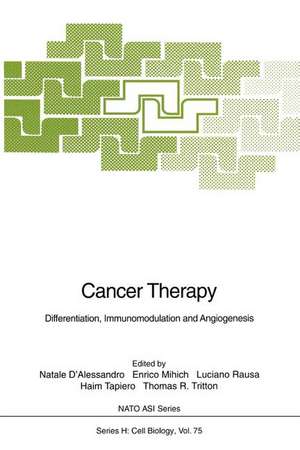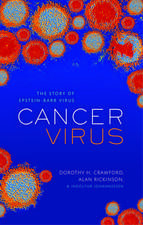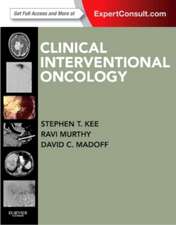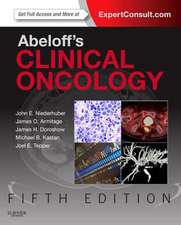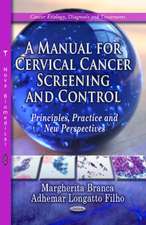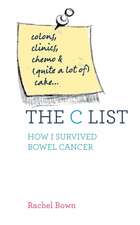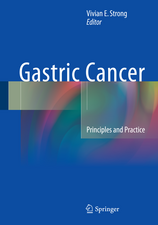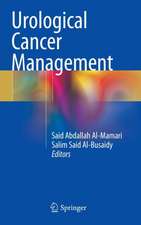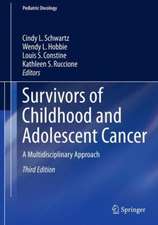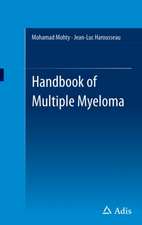Cancer Therapy: Differentiation, Immunomodulation and Angiogenesis: Nato ASI Subseries H:, cartea 75
Editat de Natale D'Alessandro, Enrico Mihich, Luciano Rausa, Haim Tapiero, Thomas R. Trittonen Limba Engleză Paperback – 21 dec 2011
Din seria Nato ASI Subseries H:
- 18%
 Preț: 953.82 lei
Preț: 953.82 lei -
 Preț: 393.13 lei
Preț: 393.13 lei - 15%
 Preț: 643.34 lei
Preț: 643.34 lei - 15%
 Preț: 643.34 lei
Preț: 643.34 lei - 15%
 Preț: 641.03 lei
Preț: 641.03 lei - 15%
 Preț: 642.83 lei
Preț: 642.83 lei - 15%
 Preț: 642.51 lei
Preț: 642.51 lei - 5%
 Preț: 712.81 lei
Preț: 712.81 lei -
 Preț: 392.97 lei
Preț: 392.97 lei - 15%
 Preț: 651.02 lei
Preț: 651.02 lei - 15%
 Preț: 640.24 lei
Preț: 640.24 lei - 18%
 Preț: 948.61 lei
Preț: 948.61 lei - 15%
 Preț: 655.92 lei
Preț: 655.92 lei - 15%
 Preț: 655.92 lei
Preț: 655.92 lei - 15%
 Preț: 653.14 lei
Preț: 653.14 lei - 15%
 Preț: 650.19 lei
Preț: 650.19 lei - 15%
 Preț: 655.13 lei
Preț: 655.13 lei - 15%
 Preț: 652.17 lei
Preț: 652.17 lei - 15%
 Preț: 675.58 lei
Preț: 675.58 lei - 18%
 Preț: 958.07 lei
Preț: 958.07 lei - 18%
 Preț: 961.41 lei
Preț: 961.41 lei - 18%
 Preț: 970.56 lei
Preț: 970.56 lei - 5%
 Preț: 1100.30 lei
Preț: 1100.30 lei - 5%
 Preț: 376.43 lei
Preț: 376.43 lei - 15%
 Preț: 650.86 lei
Preț: 650.86 lei - 15%
 Preț: 644.63 lei
Preț: 644.63 lei - 15%
 Preț: 655.60 lei
Preț: 655.60 lei - 18%
 Preț: 963.47 lei
Preț: 963.47 lei - 15%
 Preț: 648.42 lei
Preț: 648.42 lei - 5%
 Preț: 731.43 lei
Preț: 731.43 lei - 15%
 Preț: 653.14 lei
Preț: 653.14 lei - 18%
 Preț: 960.13 lei
Preț: 960.13 lei - 18%
 Preț: 968.34 lei
Preț: 968.34 lei - 18%
 Preț: 953.97 lei
Preț: 953.97 lei - 15%
 Preț: 654.95 lei
Preț: 654.95 lei - 15%
 Preț: 652.49 lei
Preț: 652.49 lei - 15%
 Preț: 650.86 lei
Preț: 650.86 lei - 5%
 Preț: 367.64 lei
Preț: 367.64 lei - 5%
 Preț: 1104.68 lei
Preț: 1104.68 lei - 18%
 Preț: 953.20 lei
Preț: 953.20 lei - 15%
 Preț: 651.99 lei
Preț: 651.99 lei - 15%
 Preț: 647.27 lei
Preț: 647.27 lei - 15%
 Preț: 653.00 lei
Preț: 653.00 lei - 15%
 Preț: 656.25 lei
Preț: 656.25 lei - 18%
 Preț: 962.35 lei
Preț: 962.35 lei - 15%
 Preț: 644.82 lei
Preț: 644.82 lei - 15%
 Preț: 666.55 lei
Preț: 666.55 lei - 15%
 Preț: 642.68 lei
Preț: 642.68 lei - 15%
 Preț: 645.96 lei
Preț: 645.96 lei - 15%
 Preț: 651.84 lei
Preț: 651.84 lei
Preț: 716.45 lei
Preț vechi: 754.15 lei
-5% Nou
Puncte Express: 1075
Preț estimativ în valută:
137.09€ • 143.52$ • 113.43£
137.09€ • 143.52$ • 113.43£
Carte tipărită la comandă
Livrare economică 05-19 aprilie
Preluare comenzi: 021 569.72.76
Specificații
ISBN-13: 9783642846151
ISBN-10: 3642846157
Pagini: 308
Ilustrații: XI, 288 p.
Dimensiuni: 155 x 235 x 16 mm
Greutate: 0.44 kg
Ediția:Softcover reprint of the original 1st ed. 1993
Editura: Springer Berlin, Heidelberg
Colecția Springer
Seria Nato ASI Subseries H:
Locul publicării:Berlin, Heidelberg, Germany
ISBN-10: 3642846157
Pagini: 308
Ilustrații: XI, 288 p.
Dimensiuni: 155 x 235 x 16 mm
Greutate: 0.44 kg
Ediția:Softcover reprint of the original 1st ed. 1993
Editura: Springer Berlin, Heidelberg
Colecția Springer
Seria Nato ASI Subseries H:
Locul publicării:Berlin, Heidelberg, Germany
Public țintă
Professional/practitionerCuprins
Colon cancer cell differentiation as related to methotrexate and 5-fluorouracil resistance.- The control of cell multiplication and differentiation in human myelomonocytic cells.- Signal transduction through the Epstein-Barr virus receptor in human B lymphocytes.- Signal transduction mechanisms as a target for cancer chemotherapy.- Therapeutic approaches for colon cancer based on transcriptional regulation of specific growth factors.- Interferon regulation of differentiation and mechanisms.- Induction of tumor cell differentiation as a mechanism of action of DNA-specific antitumor agents.- ATRA therapy in acute promyelocytic leukemia. A model for differentiation therapy.- Hemin is transported in human leukemia K562 cells and interacts with DNA sequences.- Immunomodulation by anticancer drugs in therapeutics.- Differential effects of low doses of structurally different anthracyclines on immunoglobulin production by mouse hybridoma B cells.- Chemical xenogenization of experimental tumors by antineoplastic drugs.- Reversal of drug resistance: synergistic anti-tumor cytotoxic activity by combination treatment with drug and TNF or toxins.- Immunomodulation in cancer patients treated with interleukin-2. Induction of non-specific and specific immune responses.- Potential role of tumor cell antigen modulation in cancer immunotherapy.- Effects of tumor necrosis factor-alpha on growth and doxorubicin sensitivity of multidrug resistant tumor cell lines.- Activation of macrophages by treatment of rat peritoneal cells with photofrin II and He-Ne laser 209.- Synergistic interaction between simvastatin and antineoplastic drugs on glioma cell growth.- CNS and cardiovascular effects of TNF-alpha.- Angiogenesis and angiogenesis factors in stages of carcinogenesis.- Cytokine regulation oftumor-associated macrophages: therapeutic implications.- The mechanism of lectin-mediated adhesion of human ovarian carcinoma cells.- Inhibitory effect of suramin and heparin-like drugs on experimental angiogenesis.- Role of gangliosides in the modulation of the angiogenic response.
